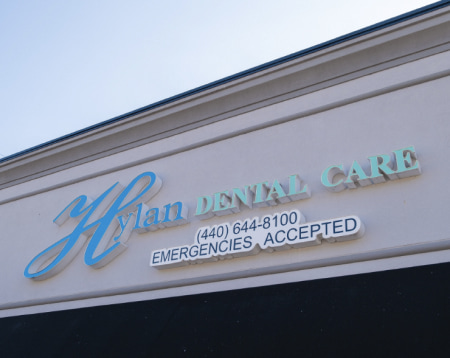Different Types of Dentures in Cleveland, OH
Discover how to get the smile and bite you deserve.
You Can Feel Confident in Your Smile
Dentures that make you feel and look good!
Embarking on the journey to rediscover your radiant smile is a personal and empowering choice. At Hylan Dental Care, we’re not just offering dentures; we’re providing you with a key to renewed confidence, comfort, and joy.
Our patient-centric approach, cutting-edge technology, and unwavering commitment to personalized care distinguish us.
Explore the possibilities with dentures that restore your teeth and enhance your overall well-being. Your journey to a brighter, healthier smile starts here.
Will My Smile Look Natural?
Our Cleveland dentist explains how dentures can help you!

Your smile: Dr. Escovar shares the secret to a naturally beautiful smile.
Our Range of Dentures in Cleveland, OH
Whether you're missing one or many teeth, a healthy smile is still possible.
Hear from Our Dentures Patients
Real patients from Hylan Dental Care share their experience.
What Type of Denture Is Right for You?
Make the right decision on your journey to your dream smile.
Now you know what kinds of dentures you can choose from at Hylan Dental Care, but how do you know which is right for you? There are multiple factors to consider, which we explain via the link below!
We're Here to Advance Your Smile





